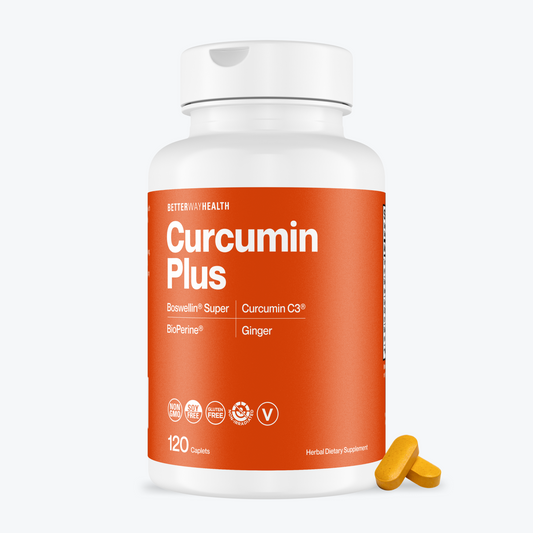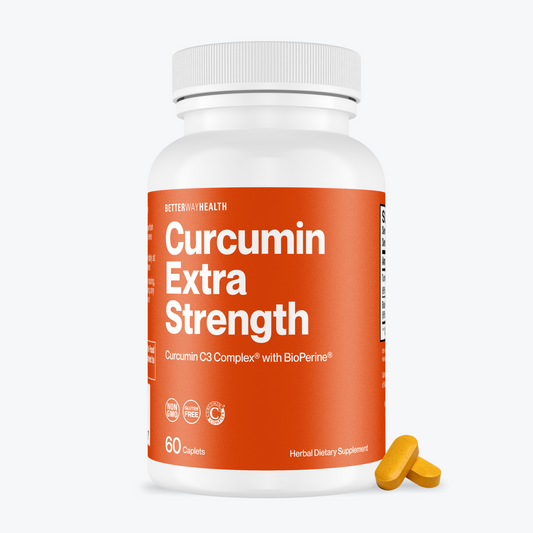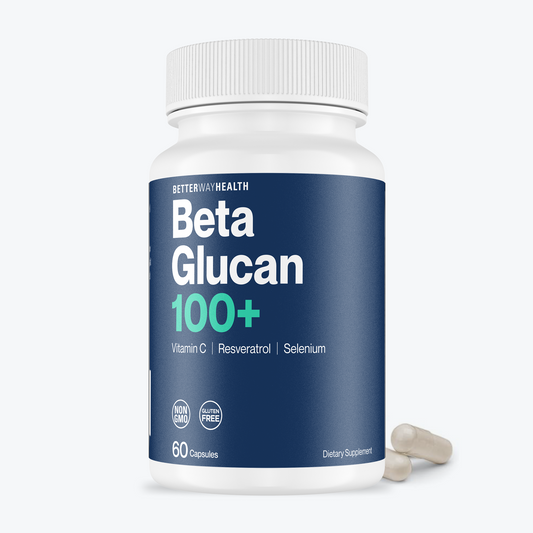Biohacking Sleep: How to Improve Sleep Quality in 10 Steps

Science has connected a lack of sleep to a variety of health problems, including weight gain and weakened immune systems.
Sleep deprivation can also negatively impact your mental health, cognitive function, and stress levels.
This is part of our content series titled biohacking your body.
Vital Info
-
Sleep is a complex biological process that's essential for physical repair, cognitive function, and emotional regulation.
-
Hormones like melatonin and cortisol play critical roles in our sleep-wake cycles, and biohacking aims to optimize their balance.
-
Biohacking sleep involves adjusting various aspects of our lifestyle and environment to enhance sleep quality.
-
Our daily activities, diet, and stress levels have profound effects on how well we sleep.
The Fundamentals of Sleep
Sleep serves as the body's method of mental and physical restoration. It has the ability to regulate blood sugar, maintain a healthy weight, and improve mental function. (1)
Hormones and Sleep
The production of melatonin, often referred to as the "sleep hormone," is crucial in regulating our sleep-wake cycle.
As daylight fades, our brains signal the body to ramp up melatonin secretion, cueing it to prepare for rest.
On the flip side, cortisol—the hormone associated with stress—should naturally decrease in the evening, allowing our minds to relax.
However, in today’s fast-paced world, cortisol levels can often remain high and disrupt this delicate balance, leading to sleep problems. (2) (3)
Serotonin, the precursor to melatonin, is another vital player. It influences both mood regulation and the initiation of sleep.
Our lifestyle choices, from diet to exercise, can have a significant impact on serotonin levels and, consequently, on the production of melatonin.
The Science of Sleep Stages
Sleep is a dynamic process that cycles through various stages, including REM (rapid eye movement) sleep and several stages of non-REM sleep, each with its own unique restorative functions.
REM sleep is when we dream, and the brain processes emotional experiences and consolidates memories.
Non-REM stages include deep sleep, which is essential for tissue repair, bone and muscle building, and strengthening the immune system. (4)

Common Sleep Problems
Many of us grapple with sleep problems, which can range from occasional restlessness to more chronic conditions like insomnia.
These issues often stem from an imbalance in sleep-related hormones or disruptions in sleep stages, particularly deep sleep.
Environmental factors, stress, and lifestyle habits can interfere with the production of melatonin and cortisol, making it harder to fall asleep and stay asleep.
Why the Quality of Sleep Matters
The repercussions of poor sleep extend beyond mere tiredness; they affect every aspect of our health and daily functioning.
-
Cognitive Decline: Lack of quality sleep can lead to decreased concentration, memory, and decision-making abilities, impacting both work and personal lives. (5)
-
Mood Disorders: Sleep deprivation is often linked with increased irritability, stress, and a higher likelihood of depression and anxiety. (6)
-
Weakened Immune System: Consistently poor sleep can impair the immune system, making one more susceptible to infections and diseases. (7)
-
Chronic Health Risks: Long-term sleep deficiency has been associated with heightened risks of obesity, type 2 diabetes, heart disease, and other chronic health conditions. (8)
By recognizing the profound significance of sleep for our overall health and well-being, we can prioritize and refine our approach to achieving restful and restorative sleep.
10 Steps to Biohack Your Way Into Better Sleep
Optimizing sleep through biohacking encompasses a myriad of steps, each addressing different facets of sleep science.
Step 1: Sync with Your Circadian Rhythm
Your circadian rhythm is the internal clock that signals when to be awake and when to rest.
To synchronize it, adhere to a consistent sleep schedule, ensuring you get enough sleep each night.
Exposure to natural sunlight during the day boosts Vitamin D production and reinforces your sleep-wake cycle.
At night, minimize exposure to blue light from screens and artificial light, as this can impede the natural increase in melatonin, the sleep hormone, necessary for a good night’s sleep. (9)
Step 2: Optimize Your Sleep Environment
The bedroom environment can profoundly affect sleep quality.
A cool room with a temperature conducive to sleep—around 60–67 degrees Fahrenheit is ideal.
Reducing noise pollution and investing in a comfortable mattress and pillows can help maintain your sleep cycle without interruption.
By creating a space dedicated to sleep, you signal to your nervous system that it's time to relax and unwind, preparing you for a better night of rest. (10)
Step 3: Adjust Your Diet for Enhanced Sleep
Nutrition plays a critical role in sleep. Eating earlier in the evening and practicing intermittent fasting can lead to better sleep by aligning food intake with your circadian rhythm.
Magnesium-rich foods like almonds and spinach, and potassium-heavy foods like bananas, can relax your muscles and nerves, promoting deeper sleep. (11)
Avoiding stimulants such as caffeine and nicotine before bedtime is essential to prevent sleep disturbances.
Suggested Reading: Biohacking for Men’s Health: The Ultimate How-To Guide
Step 4: Employ Advanced Sleep Monitoring Techniques
Utilizing gadgets like sleep trackers can provide valuable insights into the quantity and quality of your sleep.
These devices monitor metrics such as heart rate, blood pressure, and body temperature, offering a detailed overview of your sleep stages.
This technology can help you identify patterns or issues, such as periods of wakefulness or restlessness during the night.
Learn more: 17 Types of Biohacking Technology to Transform Your Health
Step 5: Consider Pre-Sleep Rituals for Mind-Body Harmony
Engaging in pre-sleep rituals can greatly enhance your sleep readiness.
Whether it's listening to a calming podcast, practicing deep breathing exercises, or engaging in light stretching, these activities can reduce sleep latency and promote a state of relaxation.
Step 6: The Role of Physical Activity in Sleep Optimization
Regular physical activity is linked to more restorative sleep and a healthier sleep cycle.
Exercise helps regulate mood and decompress the mind, reducing stress and anxiety, which can interfere with sleep.
However, timing is key; engaging in vigorous exercise too close to bedtime can have a stimulating effect and should be avoided. (12)
Step 7: Avoid Too Much Caffeine and Alcohol
Both caffeine and alcohol can have a detrimental effect on your sleep quality.
Caffeine can remain elevated in your blood for 6–8 hours, disrupting your sleep cycle.
Alcohol, while it may induce sleepiness initially, can reduce REM sleep, leaving you feeling unrested.
Cutting off caffeine after lunch and limiting alcohol intake can contribute to a better night’s sleep. (13) (14)
Next steps: Guide for Beginners Biohacking
Step 8: The Impact of Light Exposure
Light exposure significantly affects sleep.
During the evening, avoid electronic devices that emit blue light, as they can trick your brain into thinking it's still daytime, disrupting the production of melatonin.
Consider dimming lights as bedtime approaches and using devices with night settings to minimize blue light exposure.
Step 9: Mindfulness and Stress Management Techniques
Mindfulness and relaxation techniques can lower your heart rate and blood pressure, calm the nervous system, and prepare the body for sleep.
Techniques such as guided meditation or progressive muscle relaxation can help manage the stress that often impedes a peaceful night’s sleep. (15)
Step 10: Support Your Sleep With Supplements
When dietary changes and lifestyle adjustments aren't enough, supplements like beta glucan, melatonin, and magnesium can be helpful.
Beta glucan is known for its immune-boosting properties and may contribute to better sleep by promoting overall health.
Magnesium acts as a natural relaxant and can improve sleep quality. (11)(16)
Beta Glucan - Ultimate Strength for The Immune System
Beta glucan is a natural fiber-like molecule known as an immunomodulator, which means it can change (modulate) the immune system to be as strong as possible.
It activates every immune cell in the body, causing the immune system to be on high alert. In turn, the body is able to fight off harmful pathogens and germs more effectively.
Explore beta glucan supplements

Conclusion: Your Pathway to Restful Sleep
In the pursuit of restful sleep, the art of biohacking can be your greatest ally.
With the ten steps outlined, you take control of your sleep quality, transforming your night's rest into a source of strength and vitality.
Our natural supplements support this journey with the highest quality of beta glucan designed to align with your biohacking efforts.
Embrace the power of sleep biohacking and step into a life of improved health, sharp cognitive function, and overall well-being.
Biohacking Sleep FAQs
What is biohacking sleep?
Biohacking sleep involves adopting strategies that enhance the body’s natural sleep mechanisms, utilizing scientific insights and potentially technological aids to improve sleep quality and efficiency.
What is a biohacking mattress?
A biohacking mattress is designed with advanced materials and technologies to promote better sleep quality, often integrating sleep tracking and climate control features.
What supplements do biohackers take?
Biohackers often take supplements like melatonin for its sleep-inducing properties, magnesium for relaxation, and other products like Beta Glucan, which support overall health and restful sleep.
(*These statements have not been evaluated by the Food and Drug Administration. This product is not intended to diagnose, treat, cure, or prevent any disease.)
Still have questions?
Our ACES Team is always there to help.









